
Top 10 Foods for Gut Health: Naturally Boost Digestion
Discover Delicious and Nutritious Foods to Enhance Your Gut Health and Overall Wellbeing
Jun 26th, 2024

Discover Delicious and Nutritious Foods to Enhance Your Gut Health and Overall Wellbeing
Jun 26th, 2024
Gut health is the foundation of overall wellness, influencing everything from digestion to immunity and even mental health. The gut, often referred to as the “second brain,” is home to trillions of bacteria that play a crucial role in maintaining our health. When these bacteria are in balance, they help our bodies break down food, absorb nutrients, and fend off harmful pathogens. However, an imbalance in gut bacteria, often caused by poor diet, stress, or illness, can lead to a variety of health issues, including digestive disorders, weakened immunity, and mood swings.
Diet plays a significant role in nurturing a healthy gut. Consuming foods rich in probiotics, prebiotics, and fiber can help maintain and restore this delicate balance of bacteria. Probiotics are live beneficial bacteria found in certain foods, while prebiotics are non-digestible fibers that feed these good bacteria. Together, they create a harmonious environment for your gut microbiome to thrive.
In this article, we will explore the top 10 foods that can significantly boost your gut health. These foods are not only delicious but also packed with nutrients that support a healthy digestive system. From fermented favorites to fiber-rich staples, each food on this list offers unique benefits for your gut. So, let’s dive in and discover how you can enhance your gut health naturally and enjoy a happier, healthier life.

Yogurt is a powerhouse when it comes to gut health. This creamy, tangy delight is loaded with probiotics, the beneficial bacteria that help maintain a balanced gut microbiome. Regular consumption of yogurt can aid in digestion, boost the immune system, and even improve lactose digestion for those with lactose intolerance. When choosing yogurt, it’s essential to look for options labeled with “live and active cultures” to ensure you’re getting the probiotics you need. Greek yogurt is a popular choice due to its higher protein content, but traditional yogurt can be equally beneficial. Enjoy yogurt on its own, mix it with fruits and nuts for a nutritious snack, or use it as a base for smoothies and salad dressings.
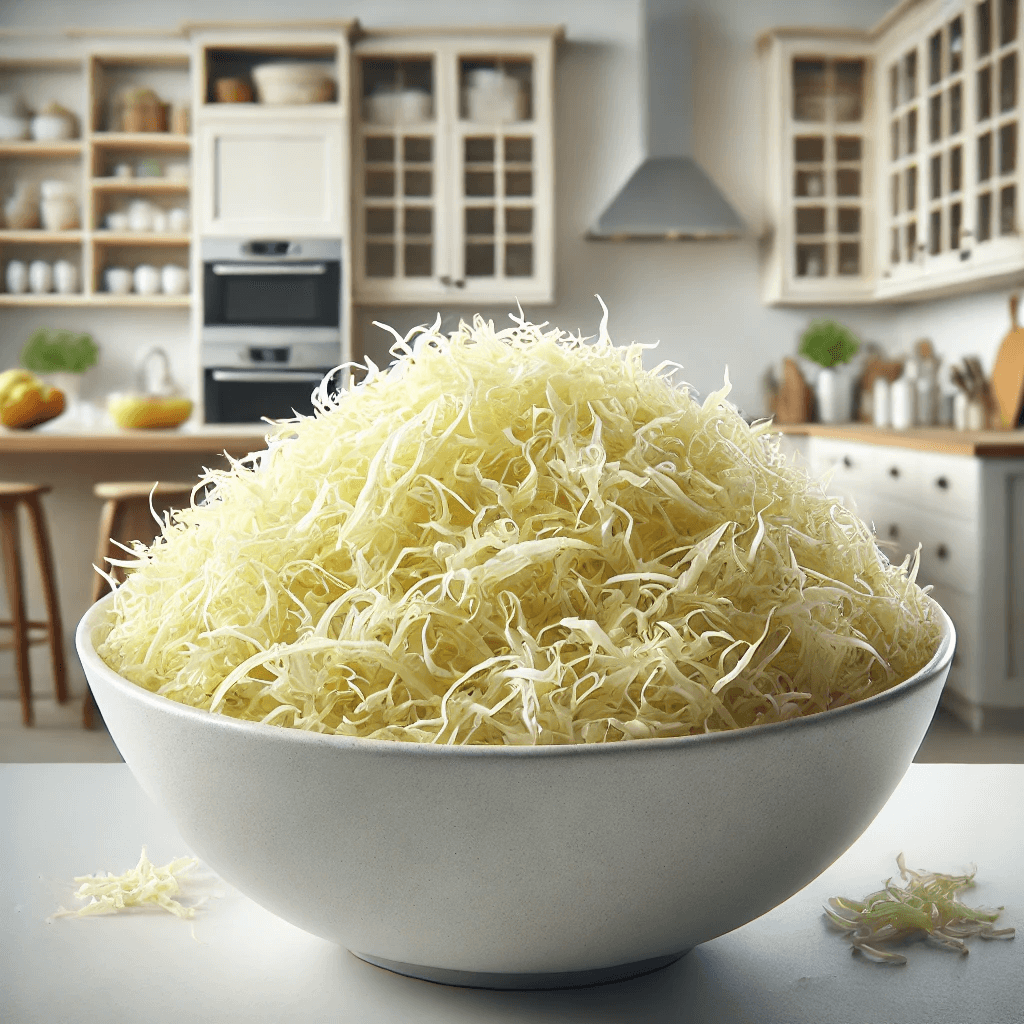
Sauerkraut, a type of fermented cabbage, is another excellent food for gut health. The fermentation process not only preserves the cabbage but also encourages the growth of beneficial probiotics. These probiotics help enhance digestion and support the immune system. Sauerkraut is also rich in vitamins C and K, adding to its health benefits. Including sauerkraut in your diet can be as simple as adding a spoonful to your sandwiches, salads, or as a side dish with your meals. For the best probiotic benefits, choose raw, unpasteurized sauerkraut found in the refrigerated section of your grocery store.

Kefir is a fermented milk drink that has been consumed for centuries for its health benefits. Similar to yogurt, kefir is rich in probiotics, but it typically contains a more diverse range of bacterial strains and yeasts, making it a potent ally for your gut. The fermentation process also breaks down lactose, making kefir easier to digest for those with lactose intolerance. Kefir has a tangy flavor and a slightly thinner consistency than yogurt. You can enjoy it on its own, blend it into smoothies, or use it as a base for creamy salad dressings and marinades. Including kefir in your daily diet can help maintain a healthy balance of gut bacteria and promote overall digestive health.
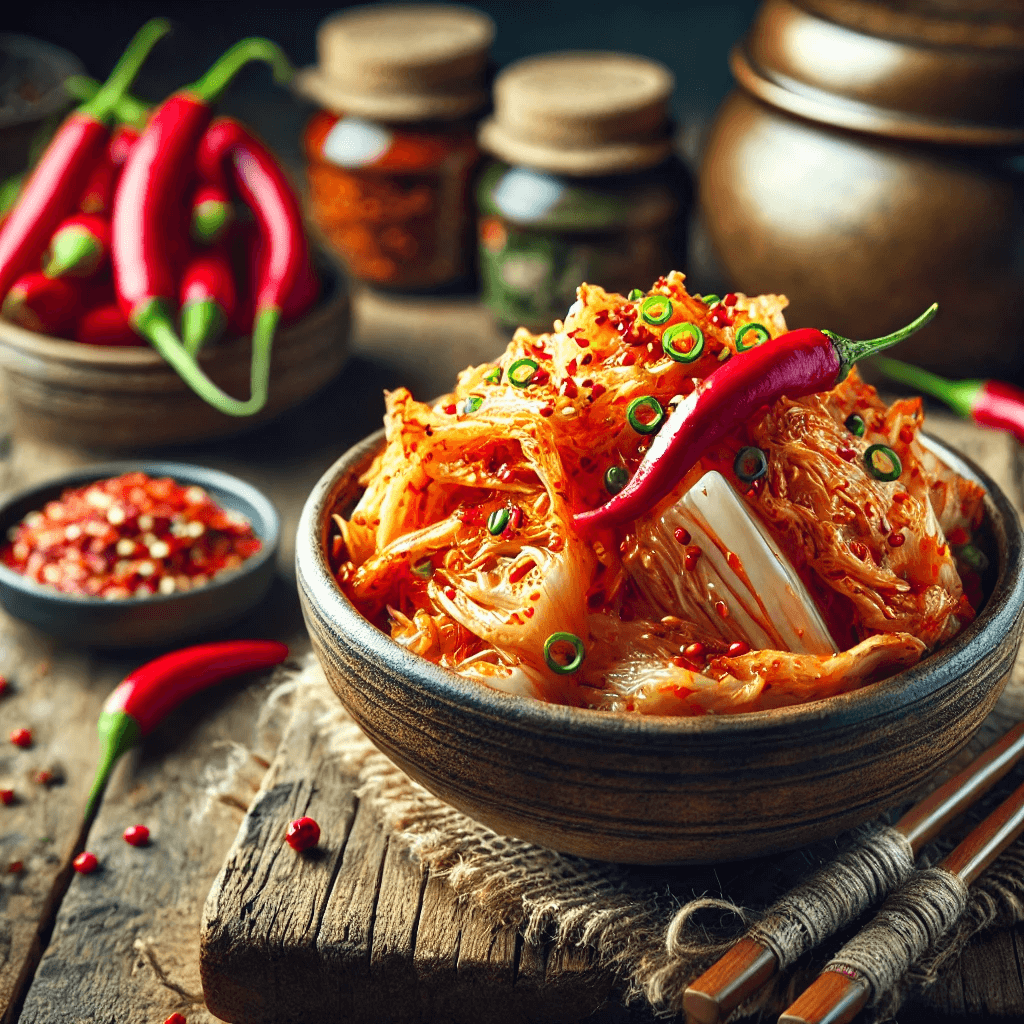
Kimchi, a traditional Korean dish made from fermented vegetables, is a flavorful and potent source of probiotics. Typically made with cabbage, radishes, and a variety of spices, kimchi undergoes a fermentation process that enriches it with beneficial bacteria. These probiotics help enhance gut health by improving digestion and boosting immunity. Kimchi is also rich in vitamins A and C, as well as antioxidants. Its spicy, tangy flavor can add a delightful kick to many dishes. You can enjoy kimchi as a side dish, mix it into rice bowls, or use it to top tacos and burgers for an extra probiotic punch.
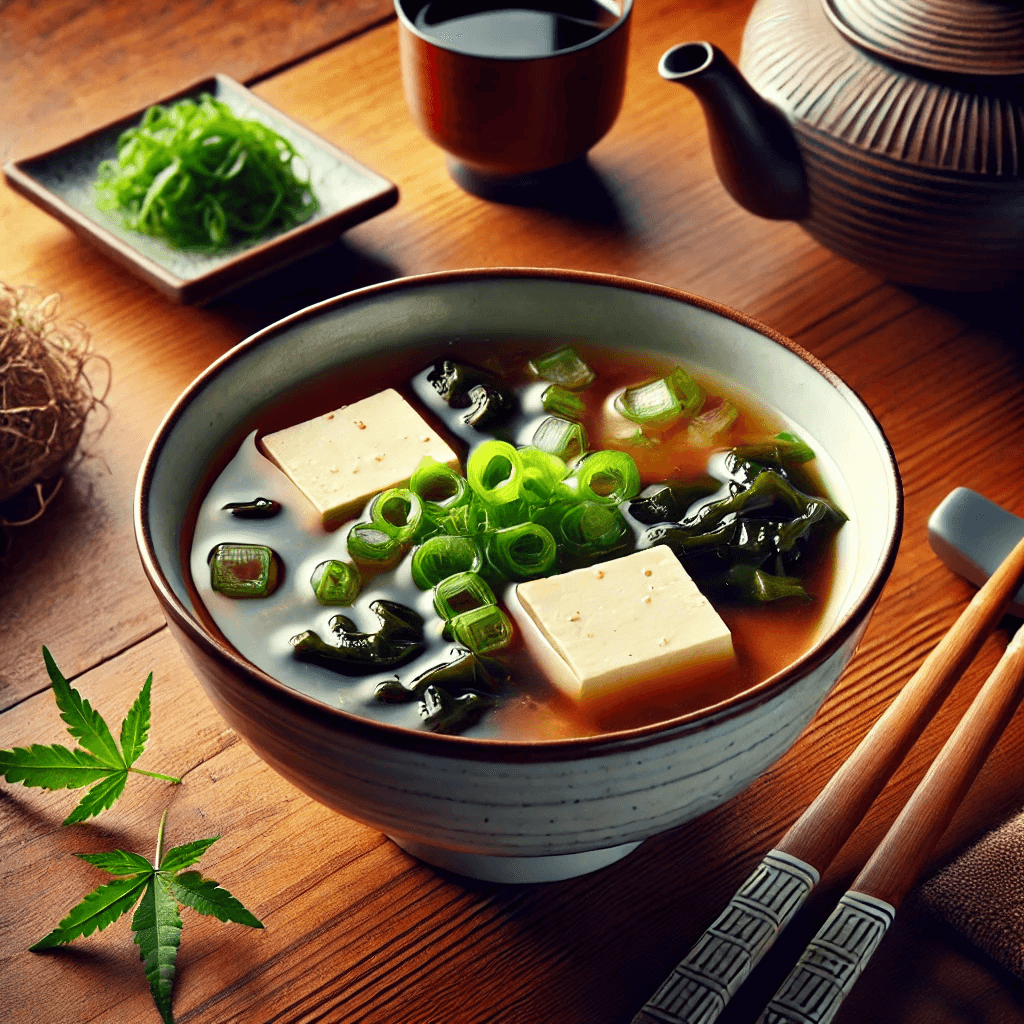
Miso, a traditional Japanese seasoning, is made by fermenting soybeans with salt and koji (a type of fungus). This fermentation process results in a thick paste that’s rich in probiotics, which support a healthy gut microbiome. Miso is also packed with essential minerals and vitamins, including vitamin K, manganese, and zinc. Its savory, umami flavor makes it a versatile ingredient in various dishes. The most common way to enjoy miso is in miso soup, but it can also be used to add depth to marinades, dressings, and sauces. Adding a spoonful of miso to your meals not only boosts flavor but also contributes to better gut health.

Kombucha, a fermented tea beverage, has gained popularity for its potential health benefits, particularly for gut health. The fermentation process of kombucha involves tea, sugar, and a symbiotic culture of bacteria and yeast (SCOBY). This process produces probiotics that can aid in digestion and support a healthy gut microbiome. Kombucha is also rich in antioxidants, which help combat oxidative stress in the body. With its tangy, slightly effervescent taste, kombucha can be a refreshing alternative to sugary sodas. You can find a variety of flavors in stores, or even brew your own at home. Enjoy a glass of kombucha as a midday refreshment or use it as a base for mocktails and smoothies to incorporate more probiotics into your diet.
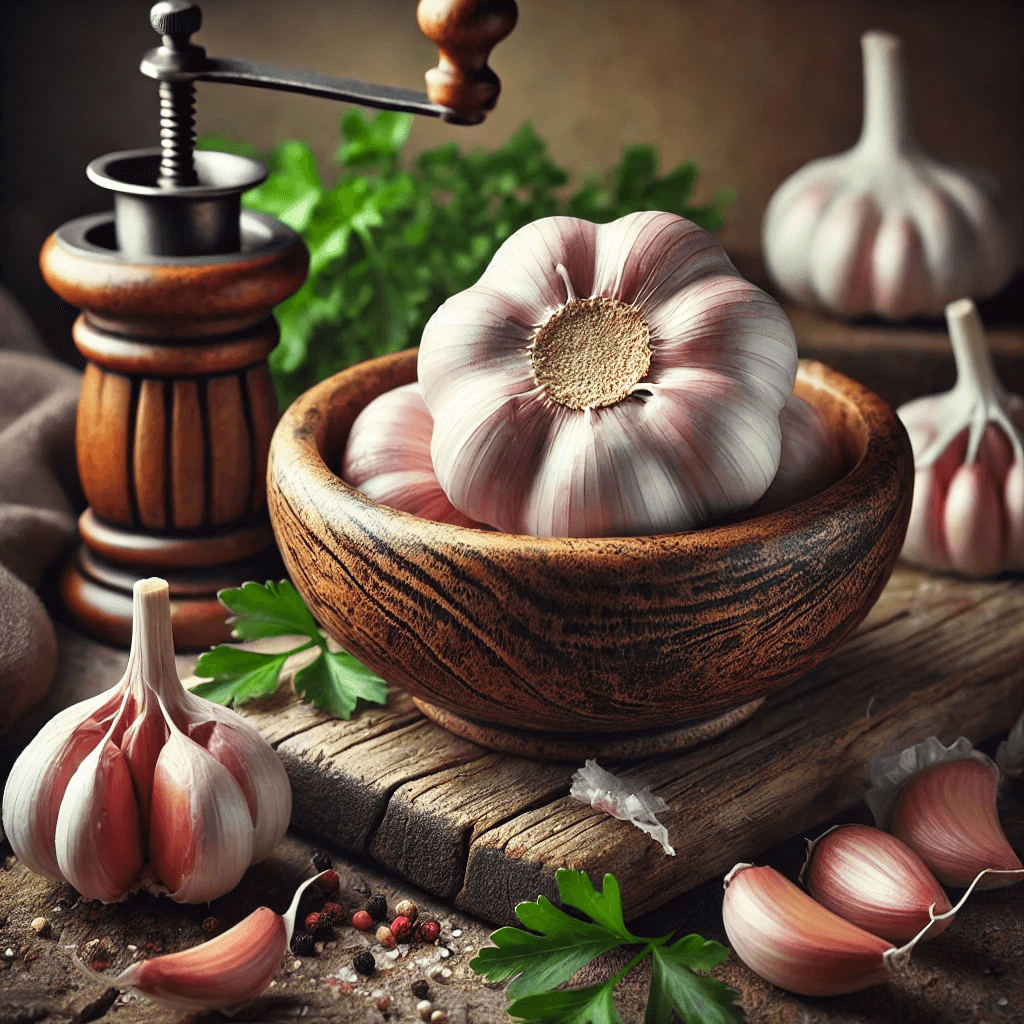
Garlic, a staple in kitchens around the world, is renowned for its robust flavor and numerous health benefits. One of its key attributes is its prebiotic properties, which support gut health by feeding beneficial bacteria in the digestive system. Garlic contains inulin and fructooligosaccharides, types of fiber that promote the growth of healthy gut flora. Regular consumption of garlic can help balance your gut microbiome, improving digestion and boosting immunity. Incorporating garlic into your diet is easy—add minced garlic to your sauces, dressings, and marinades, or roast whole cloves to bring out their natural sweetness and use them as a flavorful addition to various dishes.

Bananas are not only a convenient and tasty snack but also a great food for gut health. They are rich in dietary fiber, particularly pectin, and act as a prebiotic, promoting the growth of beneficial bacteria in the gut. Bananas also contain resistant starch, which is broken down by gut bacteria into short-chain fatty acids that nourish the cells lining the gut. Eating bananas regularly can help maintain a healthy digestive system and support overall gut health. Enjoy bananas on their own, slice them into your cereal or yogurt, blend them into smoothies, or use them to make healthy baked goods like banana bread and muffins.
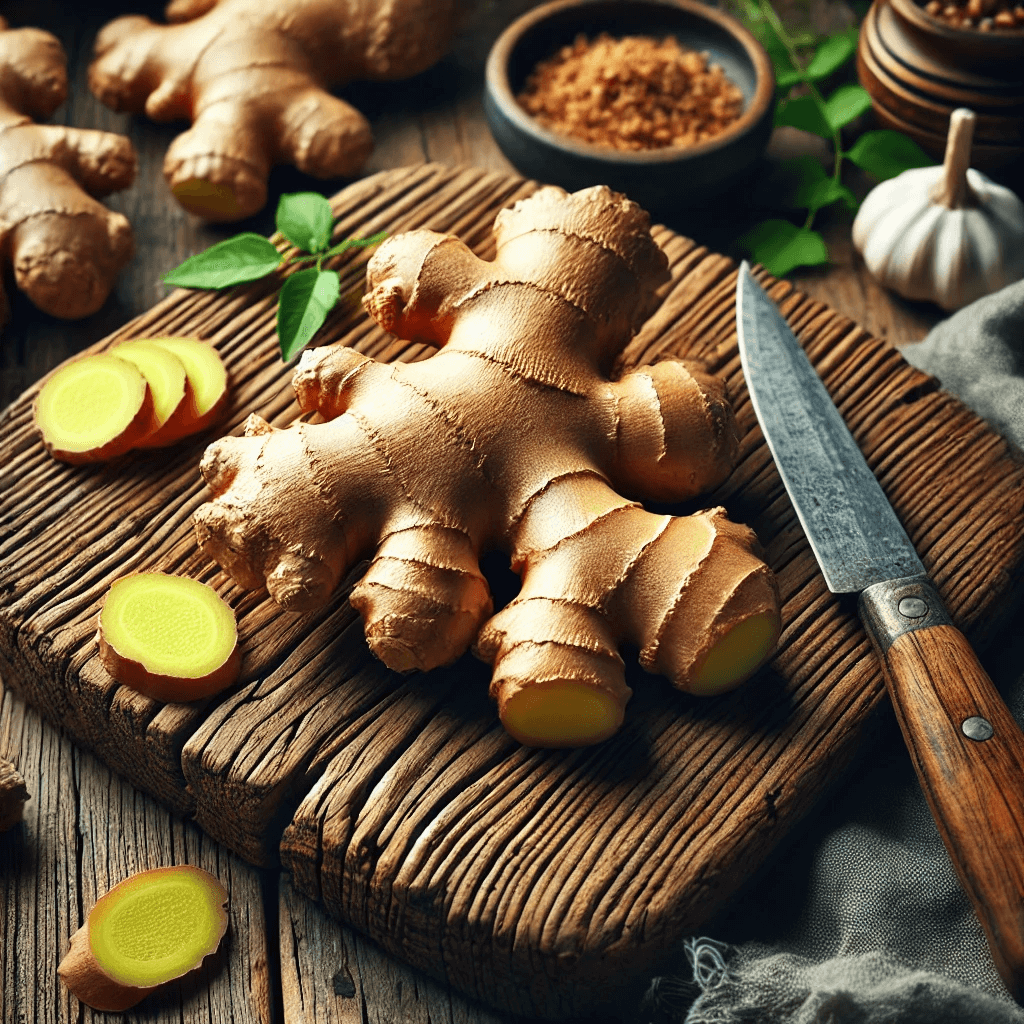
Ginger is a powerful root known for its anti-inflammatory and digestive benefits. It has been used for centuries to treat various digestive issues, from nausea to indigestion. Ginger helps stimulate digestive enzymes and increases gut motility, aiding in the efficient movement of food through the digestive tract. Its anti-inflammatory properties can also help soothe an irritated gut. Ginger is incredibly versatile and can be added to both sweet and savory dishes. Grate fresh ginger into stir-fries, soups, and marinades, or steep it in hot water to make a soothing tea. You can also add ginger to smoothies and baked goods for a spicy, health-boosting kick.
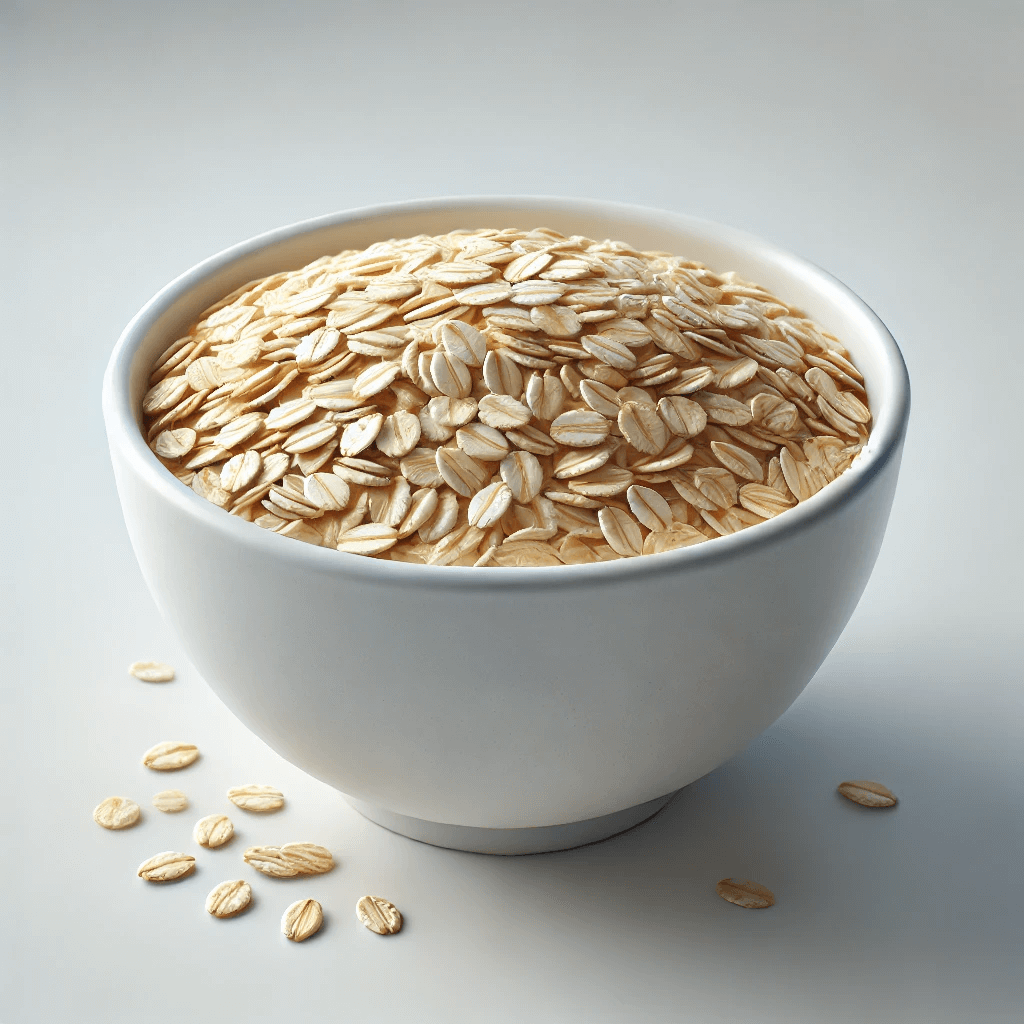
Oats are a nutritional powerhouse and a fantastic food for promoting gut health. They are rich in soluble fiber, particularly beta-glucan, which helps to keep the digestive system running smoothly. This type of fiber acts as a prebiotic, feeding the beneficial bacteria in the gut and promoting their growth. Additionally, oats can help regulate bowel movements and prevent constipation, contributing to overall digestive health.
Incorporating oats into your diet is easy and versatile. Start your day with a warm bowl of oatmeal topped with fruits, nuts, and a drizzle of honey. You can also use oats in baking, making healthy treats like oat muffins, cookies, or granola bars. Overnight oats, soaked in milk or yogurt and mixed with your favorite toppings, provide a convenient and nutritious breakfast option. For a savory twist, try adding oats to soups and stews as a thickening agent, or use oat flour in place of regular flour in recipes to boost fiber content.
Maintaining a healthy gut is essential for overall well-being, and incorporating the right foods into your diet can make a significant difference. The ten foods highlighted in this article—yogurt, sauerkraut, kefir, kimchi, miso, kombucha, garlic, bananas, ginger, and oats—each offer unique benefits that support a balanced and thriving gut microbiome. By regularly including these foods in your meals, you can enhance your digestion, boost your immunity, and improve your overall health.
It’s important to remember that a varied diet rich in whole, unprocessed foods is key to a healthy gut. Alongside these gut-friendly foods, make sure to stay hydrated, manage stress, and engage in regular physical activity, as these lifestyle factors also play a crucial role in gut health. Listen to your body and pay attention to how different foods make you feel, making adjustments as needed to support your digestive wellness.
So why not start today? Experiment with new recipes, explore different flavors, and find delicious ways to incorporate these gut-healthy foods into your daily routine. Your gut—and your entire body—will thank you for it.
Sign up for our newsletter and be the first to receive mouthwatering recipes, kitchen hacks, and exclusive gadget reviews straight to your inbox. Let’s cook up something amazing together!
Unlock culinary enchantment with Kitchen Wizdom – your gateway to delectable recipes, kitchen hacks, and the magic of food wizardry. Let the cooking adventure begin!
Copyright ©2026 Kitchen Wizdom. All Rights Reserved.